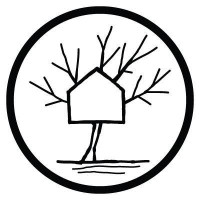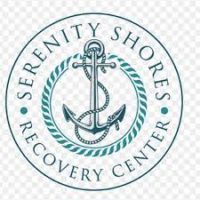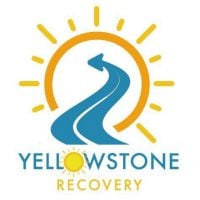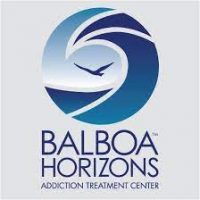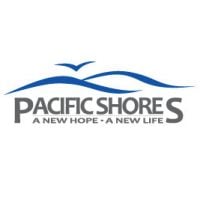Tree House Recovery
Drug Rehab Center in Costa Mesa, California
Tree House Recovery in Costa Mesa, CA offers comprehensive treatment options and support for individuals dealing with alcoholism, opioid addiction, dual diagnosis, drug addiction, substance abuse, and mental health issues, including aftercare support, drug rehab, dual-diagnosis treatment, inpatient care, intensive outpatient programs, outpatient services, partial-hospitalization, and sober-living/half-way houses.
About Tree House Recovery in California
Tree House Recovery, located in Costa Mesa, CA, is a leading treatment facility that specializes in providing support and assistance to individuals suffering from alcoholism, opioid addiction, dual diagnosis, drug addiction, substance abuse, and mental health issues. This 12-bed facility offers a range of comprehensive treatment options, including aftercare support, drug rehab, dual-diagnosis treatment, inpatient care, intensive outpatient programs, outpatient services, partial-hospitalization, and sober-living/half-way houses. Accredited by JCAHO, Tree House Recovery is dedicated to delivering high-quality care and personalized treatment plans to help individuals on their journey towards recovery. With affiliations to the reputable organization, Tree House Recovery is committed to offering expert care and support to those in need.
Tree House Recovery in Costa Mesa, CA, provides a variety of services to individuals dealing with addiction and substance abuse. Their programs include aftercare support, enabling individuals to receive ongoing assistance following their primary treatment. They also offer drug rehab programs for those specifically focused on overcoming substance abuse issues. Additionally, Tree House Recovery provides dual-diagnosis treatment for individuals facing both addiction and mental health challenges. Their inpatient, intensive outpatient, and outpatient programs cater to individuals with different needs and levels of care. The facility also offers partial-hospitalization services for individuals who require a higher level of care. Moreover, Tree House Recovery provides sober-living/half-way houses to support individuals transitioning from treatment back into daily life. With a commitment to excellence, Tree House Recovery is dedicated to helping individuals achieve lasting recovery and improved overall well-being.
Genders
Ages
Modality
Additional
Accreditations

JCAHO
Conditions and Issues Treated
Some addicts can benefit from substance abuse treatment, which is designed to help them become and remain sober without the use of medications. These programs are typically used by those struggling with drugs like marijuana or hallucinogens. However, they might be beneficial for those with a co-occurring mental health disorder like schizophrenia, major depression or bipolar disorder.
During this type of treatment, the addict will meet with therapists and other professionals on a regular basis to learn coping skills and healthy ways to deal with their addiction and mental health disorder.
Treatment programs often combine medications with counseling, support groups and even medical services like those found in hospitals or doctor’s offices. There are also detoxification services that addicts can use to get sober and avoid severe withdrawal symptoms.
Opioids are a group of drugs that include substances such as heroin, morphine, and oxycodone. These drugs activate opioid receptors in the brain, which produce pleasurable feelings. Opioid addiction occurs when drugs are abused at increasing rates or increasing amounts because the body becomes tolerant of them.
Opioid addiction is typically diagnosed when drug abuse becomes a typical behavior that interferes with an individual’s ability to function daily. The use of the substance results in consequences like legal problems.
Treatment for opioid addiction varies depending on each individual’s needs. Some treatments focus on replacing opioids with other drugs that have similar effects of reducing withdrawal symptoms. Other treatments aim to reduce the risk of relapse by providing psychological support or using more natural methods.
A drug rehab center that uses Dual Diagnosis is more likely to be successful in rehabilitating a person. Dual diagnosis helps to identify and treat any co-occurring disorders. It is essential to screen for both addiction and any untreated mental health issues. A dual diagnosis gives rehab the means to treat addiction while restoring mental and emotional health.
About 70% of patients with drug addiction have at least one other psychiatric diagnosis. Fortunately, dual diagnosis treatment is a proven model that has been highly effective.
Levels of Care Offered
This center offers a variety of custom treatment tailored to individual recovery. Currently available are Aftercare Support, Drug Rehab, Dual-Diagnosis, Inpatient, Intensive Outpatient, Outpatient, Partial-Hospitalization, Residential, Sober-Living / Half-Way, with additional therapies available as listed below.
Inpatient rehab means you live there while your addiction or co-occurring disorder is treated. Prescribed medications are used along with counseling.
This type of rehabilitation provides a drug-free environment for people who struggle with chronic/long-term addiction (or their own home). Jobs or school can be put on hold until after the stay to focus solely on recovery.
An intensive outpatient program is usually the first phase of addiction treatment. It provides relief for those addicted, but not ready to commit to an inpatient setting. IOPs consist of a daily 3 to 5-hour program, and there is a required number of hours per week. The goal here is to teach patients healthy coping skills, such as stress management.
Outpatient programs offer a lower intensity level of addiction treatment than inpatient facilities. They are ideal for those who have graduated from inpatient facilities, have a supportive home environment, and are motivated to commit to the program. Services offered include medication-assisted treatment, individual and group therapy, and peer group support.
This treatment is a popular option for those suffering from a lower intensity addiction. It is not advisable for someone who needs to go through a medically supervised detox or does not have a supportive home environment. It requires motivation and dedication to commit to the program without constant monitoring.
For people looking for drug treatment, partial hospitalization programs offer an alternate option to inpatient rehab or residential treatment. Patients attend therapy sessions for a set number of hours each day. They can typically visit family or go home during non-therapy hours.
Partial hospitalization programs can last from one to six months and are appropriate for patients with acute addiction symptoms. Tree House Recovery offers a partial hospitalization program in , and is a good option for people looking for drug treatment.
Sober Living Homes are an option for those who have completed a treatment program within the past several months. However, it isn’t advisable to use this as a permanent living arrangement because it can lead to a relapse .
The goal of a sober living home is to provide a supportive environment for recovering addicts so they don’t need to return to their previous lifestyles. The homes will not accept residents who are still using drugs or alcohol, and those living in the house must follow a set of rules dictating how they should behave to avoid relapsing.
Residential treatment programs are those that offer housing and meals in addition to substance abuse treatment. Rehab facilities that offer residential treatment allow patients to focus solely on recovery, in an environment totally separate from their lives. Some rehab centers specialize in short-term residential treatment (a few days to a week or two), while others solely provide treatment on a long-term basis (several weeks to months). Some offer both, and tailor treatment to the patient’s individual requirements.
Aftercare Support in drug rehab is crucial because it helps people stay sober after treatment. Aftercare Support in drug rehab is helpful because it provides the recovering person with a support group, including family members, friends, and other peers who are also in recovery.
The benefits of Aftercare Support are that it provides a pathway that will help people get sober for life. It supports healing at all levels, physical, mental, emotional, and spiritual. Another benefit of Aftercare Support is that participants learn to maintain their sobriety through holistic methods. They learn to modify behaviors individually to have peace of mind, have positive relationships with others, and find peace on the inside.
Therapies & Programs
During individual therapy at Tree House Recovery in , the person in recovery meets with a therapist one on one to go over their situation and learn from past mistakes. The counselor or therapist will use this time to address the causes of addiction, triggers, and any mental issue or dual diagnosis. They will also address aftercare plans, giving them the best chances of long-term sobriety.
This therapeutic process is very intense and challenging to go through. Some clients may find it easier to open up with someone apart from their family or loved ones who understand their struggles and experience with addiction.
Family therapy is designed to help addicts get clean and sober by using what they love the most; their family. Most drug treatment centers make it mandatory that the addict’s family attend therapy sessions, which is great because having everyone there to support them makes it much easier for them to get clean. Not only are they surrounded by people who want them to get better, but everyone is there because they want the best for them, not because they feel like they have to be.
Drug addicts are often surrounded by resentful or uneducated family members who would, at times, rather see them stay addicted because it makes their own lives easier. Sometimes they don’t understand what the addiction is or how they play a part in it. They know that during and after the addict’s sobriety journey, they will face challenges and changes that they aren’t sure how to handle. This can be very tough for an addict to go through on their own, which is why it’s so important that they have the support of their family. Just because someone is an addict does not mean that they don’t deserve the love and support of those around them.
Addicts in Costa Mesa, CA can find support in group therapy at Tree House Recovery by finding peers who understand their situation and being held accountable. They also learn to develop faith, understanding, and insight into their addiction through shared conversations.
Group Therapy is employed by drug treatment centers to provide the recovering addict with a platform to talk about their feelings and experiences. It also provides for an opportunity to learn from other addicts who have successfully overcome their addiction. It is recommended that all group members be recovering addicts for this type of therapy to work.
Trauma therapy allows people who struggled with a past trauma to face the situation and learn from it. Many people go through traumatic events at an early age that later leads them into addiction as adults. By addressing this issue during treatment at Tree House Recovery in [/type], you can move forward with your recovery process and take back control of your sober future, too!
Traumas are one of the most common causes of psychological disorders such as Addiction Disorder. It’s often found among those diagnosed with Addictive Disorders because traumatized individuals have strong emotions or thoughts related to their traumas, leading to addictive behaviors.
Dialectical behavior therapy (DBT) is a cognitive-behavioral therapy that focuses on eliminating specific negative thoughts, such as suicidal thoughts. These negative thoughts can potentially lead to an individual inflicting self-harm. It helps treat patients exhibiting uncontrollable emotions, intense mood swings, and borderline personality disorders.
The term “Dialectic” means the integration of opposites. In substance abuse, DBT refers to accepting the patient’s addiction and working to change their thoughts and behavior. It improves life skills such as controlling intense emotions without reacting impulsively, resolving interpersonal conflicts effectively, and promoting awareness about self and others.
Cognitive Behavioral Therapy (CBT) helps addicts comprehend the causes of their substance abuse and the consequences that follow. The treatment’s goal is to help addicts gain self-control and maintain abstinence from drugs and alcohol over the long term. Through CBT, clients learn to recognize and avoid high-risk situations and cope with challenging situations when they arise.
Patient Experience
Creative Arts
Creative arts therapy, or expressive therapy, is beneficial to those battling addiction. It can include writing, music, drama, art, and other forms of self-expression. It improves the patient’s emotional state and allows them to focus on something other than addiction. It allows Tree House Recovery to examine how their feelings and emotions play out through the creative process in Costa Mesa, CA.
Recovery can be a difficult process, but it is possible to heal and move forward with the help of creative arts therapy. If you or a loved one is struggling with addiction in , , consider using creative arts therapy to help the recovery process.
Experiential Therapy at Tree House Recovery
Experiential therapy is a type of treatment involving immediate, intense experiences designed to manage addiction. Experiential therapy is beneficial for:
- People who are seeking to overcome an addiction but have difficulty focusing on treatment goals
- People with short attention spans due to high levels of stress or difficulty concentrating
- People who are afraid of engaging in treatment due to negative past experiences
Fitness Therapy
The most important part of recovering is recovering the body. Addiction can damage your health in many ways. Learning how to take care of yourself includes physical fitness. Exercise can release feel-good chemicals and can further contribute to positive self-esteem. Self-discipline can be practiced through an exercise regimen as you learn how to take care of yourself.
Studies have shown that exercise increases abstinence rates, ease withdrawal symptoms and improve depressive symptoms for those in Costa Mesa, CA.Exercise is an ideal way to improve physical and mental health. To help a body heal from the damage of addiction, those undergoing treatment at Tree House Recovery in Costa Mesa, CA are advised to engage in fitness therapy.
Payment Options Accepted
For specific insurance or payment methods please contact us.
Is your insurance accepted?
Ask an expert, call (888) 674-0062
Tree House Recovery Associated Centers
Discover treatment facilities under the same provider.
Learn More About Tree House Recovery Centers
Additional Details
Specifics, location, and helpful extra information.
Costa Mesa, California 92627 Phone Number(855) 202-2138 Meta DetailsUpdated November 25, 2023
Staff Verified
Tree House Recovery Patient Reviews
There are no reviews yet. Be the first one to write one.
Costa Mesa, California Addiction Information
More than 3 million of California's citizens are addicted to illegal drugs. Almost 800,000 people use hard drugs, almost 5 million use marijuana, and another 2.1 million abuse alcohol every year. Other substance abuse issues such as binge drinking and teen drug use are also common. Many illegal drugs such as cocaine, heroin, methamphetamine, and marijuana are smuggled into the state from Mexico.
Methamphetamine and prescription drugs are a huge problem in Costa Mesa, California. In 2015, 11 drug overdose deaths were reported in Costa Mesa. The percentage of high school students in Costa Mesa who reported using marijuana was higher than the county average. Many rehab facilities in the city will begin by assessing your addiction and then creating a treatment plan tailored to your needs.
Treatment in Nearby Cities
- San Mateo, CA (367.3 mi.)
- Carlsbad, CA (46.9 mi.)
- Palmdale, CA (65.7 mi.)
- Downey, CA (24.0 mi.)
- Sanger, CA (231.3 mi.)
Centers near Tree House Recovery
The facility name, logo and brand are the property and registered trademarks of Tree House Recovery, and are being used for identification and informational purposes only. Use of these names, logos and brands shall not imply endorsement. RehabNow.org is not affiliated with or sponsored by Tree House Recovery.
